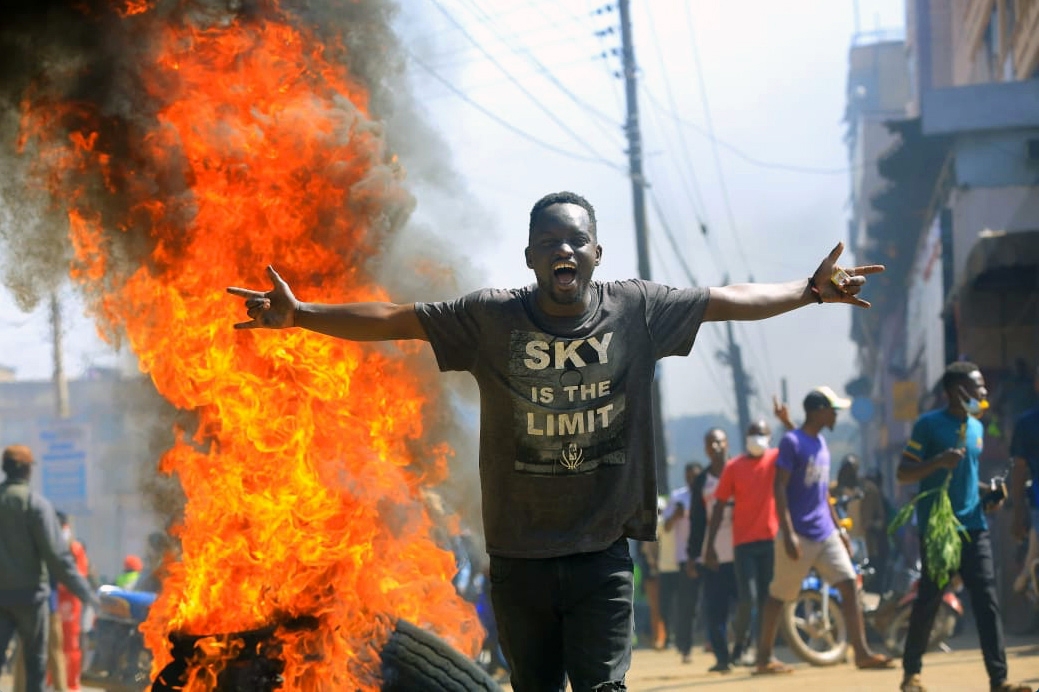Last year, the government announced that it was giving out subsidised fertilisers to farmers in the midst of a drought. It did not make sense to my neighbours and me. The problem with the government is that it never consults. Most of their plans fail to work for us because of this
Days after the US government announced a new multibillion-dollar initiative to bolster food supply systems in Africa, the Kenyan government also unveiled a new food security plan.
Livestock PS Harry Kimtai said he hopes the plan will help Kenya reduce its dependency on imported food by boosting agricultural output.
While this initiative is commendable, it’s not clear if it will lessen the devastating impact of the drought in many parts of the country.
Josefa Leonel Correia Sacko, an economist from Angola and the African Union’s Agricultural Commissioner, says the twin issues of climate change and food insecurity are continent-wide challenges threatening Africa’s broader development goals.
She notes that temperature increases, extensive flooding and prolonged droughts, among others, are causing loss of lives, property damage and population displacement. These effects hamper Africa's ability to meet the Sustainable Development Goals and the African Union Agenda 2063.
Food security is the second UN SDG whose target is that by 2030, the world will be free of hunger. Under AU 2063, food security is the fifth agenda.
With all the instabilities brought on by climate change, achieving food security for Africa becomes evasive.
Njeri wa Njenga and her husband Njenga Ngigĩ, both in their nineties, have never needed government assistance for food. But, Njeri, a former Mau Mau fighter, and Njenga, a former driver who remembers when Kenya was largely virgin land with abundant food, are despairing.
Njeri says it is now common for people to rely on government food aid.
The legacy of colonialism, poverty, inadequate infrastructure, political instability and climate change are largely to blame for the consistent food crises in Africa.
Colonial agricultural production systems exploited fertile land and other resources to meet the export needs of global north industries and consumers. This legacy has fundamentally influenced hunger in Africa. The colonial approach to agriculture and food security continues today.
For instance, Kenya has criminalised the sharing of seeds between farmers. Offenders face a prison sentence of up to two years or a fine of up to Sh1 million. A court case by smallholder farmers has been ongoing since September 2022.
Mary Gichuki, a conservation agriculture farmer in Kenya, says, “Banning sharing of seeds stops us from working with other farmers. We were filling the gap left by extension officers but we have slowed down because of harassment by the government. The food crisis will only worsen.”
For Njeri, lack of responsiveness from authorities to address communities' real and shifting needs is increasing food insecurity.
"Last year, the government announced that it was giving out subsidised fertilisers to farmers in the midst of a drought. It did not make sense to my neighbours and me. The problem with the government is that it never consults. Most of their plans fail to work for us because of this," she adds.
Non-governmental organisation Fridays for Future founder Issa Sessay says the needs of communities are often not considered by donor stakeholders, contributing to the frequent failure and abandonment of aid projects in Sierra Leone.
Ugandan teacher and climate sensitisation activist Masika Ronah agrees, questioning how the mass rollout of mosquito nets is relevant to families going hungry following consecutive years of drought. For her, sleeping hungry under a mosquito net is no different from having to deal with malaria. They are both deadly if left unattended.
In Africa, political conflict is the primary driver of food scarcity. A recent African Centre for Strategic Studies report points out that more than 80 percent of Africans’ experiencing acute food insecurity are in conflict-affected areas.
UN-FAO notes that conflict displaces people from their homes and depletes their assets and access to resources, increasing the vulnerabilities of the poor.
Political instability and conflict tend to trigger long-term food shortages that are exacerbated by disasters like droughts and flooding.
With the foregoing, food insecurity across Africa will continue to increase. The only way out is to implement strategies to improve Africa's food security. Investing in agriculture as per the Malabo Declaration will help Africa have a better chance at improving food security even as climate change worsens.
Environmental journalist based in Nairobi

















